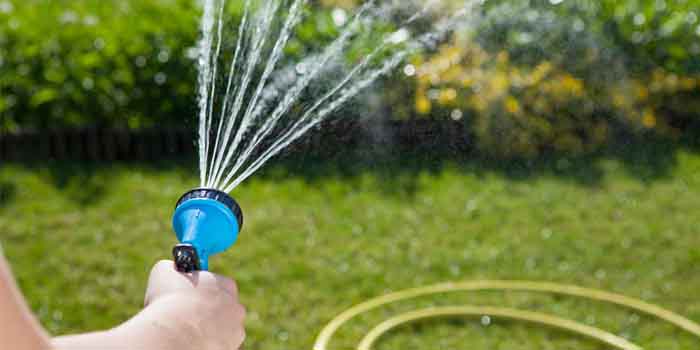
Smart Home Water Management: Revolutionizing Resource Efficiency
Share
In the era of rapidly advancing technology, smart home devices have become an integral part of our daily lives, enhancing convenience and efficiency. Among these innovations, smart home water management stands out as a revolutionary concept, offering intelligent solutions to conserve watera precious and limited resource. By leveraging the power of the Internet of Things (IoT), these systems provide real-time insights and control over water usage, enabling homeowners to make informed decisions that contribute to sustainability. Whether you're a tech enthusiast or a tech professional, understanding the impact and potential of smart home water management is essential in our quest for a sustainable future.
As climate change and population growth put increasing pressure on water resources, the importance of efficient water management cannot be overstated. Smart home water management systems offer a proactive approach to addressing this challenge by integrating advanced technologies that monitor, control, and optimize water usage within households. By reducing wastage and promoting responsible consumption, these systems not only benefit the environment but also result in significant cost savings for homeowners.

How Smart Home Water Management Works
At the core of smart home water management lies a network of IoT-enabled devices and sensors that communicate with each other to monitor water flow and detect anomalies. These devices are typically installed at key points in the plumbing system, such as faucets, showers, and irrigation systems. Through a centralized control hub, homeowners can access real-time data and insights via a smartphone app or web interface.
One of the key features of these systems is leak detection. By monitoring water flow and pressure, smart sensors can identify leaks or irregularities, alerting homeowners to potential issues before they escalate into costly repairs. Additionally, these systems can automatically shut off the water supply in the event of a major leak, minimizing damage and preventing unnecessary water waste.
Benefits of Smart Home Water Management
The advantages of implementing a smart home water management system are manifold:
- Water Conservation: By providing insights into water consumption patterns, these systems empower homeowners to make informed decisions that reduce waste and promote efficient use. For more tips on saving water, check out these ways to save water.
- Cost Savings: By identifying leaks and optimizing water usage, homeowners can significantly reduce their water bills. The initial investment in smart technology is often offset by the long-term savings achieved through reduced consumption.
- Environmental Impact: Efficient water management contributes to the preservation of natural resources, reducing the strain on water supplies and promoting sustainability.
- Convenience and Control: With remote access to water usage data and control over devices, smart home water management systems offer unparalleled convenience and flexibility for homeowners.
Challenges and Considerations
While the benefits of smart home water management are compelling, there are several challenges and considerations to keep in mind:
Initial Costs: The installation of smart home water management systems can be expensive, and homeowners must weigh the initial investment against the potential long-term savings and environmental benefits.
Data Privacy: As with any IoT-based system, data privacy and security are critical concerns. Homeowners should ensure that their systems are equipped with robust security features to protect their data from unauthorized access.
Integration and Compatibility: Ensuring that smart water management devices are compatible with existing home automation systems can be a challenge. Homeowners should seek solutions that offer seamless integration with other smart home devices.
The Future of Smart Home Water Management
The future of smart home water management is promising, with ongoing advancements in IoT technology and increased awareness of environmental sustainability. As these systems become more accessible and affordable, we can expect wider adoption across households, leading to significant reductions in water consumption and a positive impact on the environment.
Furthermore, the integration of artificial intelligence and machine learning into water management systems holds great potential. By analyzing historical data and predicting usage patterns, these technologies can further optimize water consumption and enhance the overall efficiency of smart home systems. If you're interested in learning more about the impact of smart technologies on resource management, explore our article on water management in cities.

FAQs
What is smart home water management?
Smart home water management refers to the use of IoT-enabled devices and sensors to monitor, control, and optimize water usage in households. These systems provide real-time insights and alerts, helping homeowners conserve water and reduce costs.
How do smart water management systems save water?
Smart water management systems save water by identifying leaks, monitoring usage patterns, and providing data-driven insights that encourage efficient consumption. They can also automatically shut off the water supply in the event of a major leak, preventing waste and damage.
Are smart water management systems worth the investment?
While the initial cost of smart water management systems can be high, the long-term savings achieved through reduced water bills and the environmental benefits make them a worthwhile investment for many homeowners.
